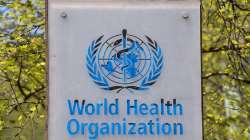WHO Regional Committee meet concludes, member countries vow to strengthen health systems
WHO Regional Committee meeting: The member countries endorsed the Regional Strategy Roadmap on Health Security and Health System Resilience for Emergencies 2023-2027 to boost emergency preparedness.

WHO Regional Committee meet: The 75th session of the Regional Committee for WHO South-East Asia concluded in Bhutan on Friday with member countries vowing to strengthen health systems, accelerate multisectoral actions and re-energising comprehensive primary health services to build societies that are more inclusive, equitable and resilient against present and future emergencies.
Dr Poonam Khetrapal Singh, Regional Director, WHO South-East Asia, said the focus must be on identifying vulnerable populations and how best their health needs can be addressed.
We are at a history-defining juncture. Over the past two and a half years, the region and the world have witnessed immense transformative change, she said.
"It is important for us not just to spend more on health, but to spend efficiently and spend equitably. Our focus must be on vulnerable populations, we must identify them and see how best we can address their needs. We cannot leave anyone behind as we seek to drive rapid and sustained progress towards universal health coverage, health security and health for all," Singh said in a statement.
Building on the lessons learnt from the ongoing COVID-19 pandemic, the countries committed to strengthening emergency preparedness and build health systems that are also resilient to the environment and climate change, the statement issued by the WHO said.
The annual governing body meeting of the WHO in the region, which met in person after a gap of three years due to the COVID-19 pandemic, adopted 'Paro Declaration' to address mental health through primary care and community engagement, it stated.
The statement said the regional committee adopted resolutions to accelerate progress against non-communicable diseases, including oral health and integrated eye care and to promote social participation to strengthen primary health care in support of universal health coverage.
Recognising that climate action is health action, the committee decided to extend the Regional Framework for Action in Building Health Systems Resilient to Climate Change (2017–2022) till 2027, it said.
The member countries committed to accelerating efforts to eliminate cervical cancer and achieve end-TB targets, the statement said.
The session endorsed the implementation of a roadmap for the prevention and control of noncommunicable diseases in South-East Asia 2022–2030, and two action plans -- for oral health in South-East Asia 2022–2030 and for integrated people-centred eye care in South-East Asia 2022–2030 -- were also endorsed, the statement said.
The regional committee emphasised the need to revitalise regional knowledge- and experience-sharing mechanisms aligned with national, regional and global goals for strengthening comprehensive people-centred primary health services and health systems to respond to public health priorities, such as mental health, non-communicable diseases, emergencies and pandemics, including COVID-19 and, more recently, monkeypox.
The member countries endorsed the Regional Strategy Roadmap on Health Security and Health System Resilience for Emergencies 2023-2027 to boost emergency preparedness, readiness and response through capacity building and enhanced governance, the statement said.
The WHO South-East Asia Regional Roadmap for Diagnostic Preparedness, Integrated Laboratory Networking and Genomic Surveillance 2023-2027 was adopted to strengthen national laboratories for improved surveillance and generation of quality data on emerging and re-emerging public health threats, it said.